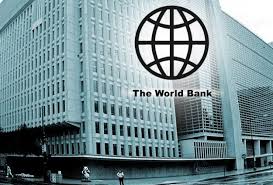The World Bank has praised the Federal Government of Nigeria for removing subsidies on petroleum products.
According to the bank, it is a hard choice which Nigeria had to make for the good of the people.
President, World Bank Group, David Malpass, who spoke in Washington D. C. on Wednesday at the opening press conference for the World Bank at the ongoing 2020 International Monetary Fund (IMF)/World Bank virtual annual meetings, called it a “significant progress” by the Nigerian government.
He said, “I compliment Nigeria for tackling the problem of subsidies in the hydrocarbon area.
“By reducing those subsidies and allowing gasoline prices to rise – it is very hard for governments to do that – there are substantial benefits.
“It means that there are fiscal savings, it also means that there are environmental benefits that are large and it allows markets to work better and to allocate resources better.
“So, I think progress is being made in that area and it is valuable. ”
Malpass was responding to a question on Nigeria’s huge youth population.
With subsidy gone, Nigeria also needs to strengthen the health and the education system in other harness the immense potential of the youth
Malpass also noted that the governance system and transparency were vital in order to reduce the corruption within the system.
According to him, “I think each country has to confront or has to think about where it wants to be in a post-COVID world that is going to be very different from the pre-COVID world.
“That means a different way of people interacting, hopefully better; a greener way of operating; and an emphasis on health care.
“We have extended the emergency health response to include vaccines and distribution of vaccines for COVID, but it also has the benefit of helping the vaccination programes in other areas and the healthcare outreach in other areas that will be so valuable.”
Malpass., on the effects of COVID-19 on economies, said that looking at the next stage, it would be a prolonged downturn for many countries.
He is not foreseeing a fast rebound in tourism, for example, as many would like to have.
“We know it is going to be different from the pre-COVID economy. We do not know exactly how and that will only evolve over time.
“So, having countries preserve some of their core industries and businesses, and then keeping families together.
“We are providing social safety nets to try to help provide cash grants for people,” he said.
Nigeria also came up for mention by the when he advocated keeping markets open across borders and where markets are closed and lowering the barriers that occur.
He said, “So, for example, between Benin and Nigeria, there are high tariff barriers on rice, which is distortive and expensive, so finding steps that can be done to facilitate cross border trade and to allow commerce to take place.”
He called for *a safe environment, one that is available to all people, that is not discriminatory in terms of the way it operates.”
As per Malpass, “I think looking more broadly, it is the commitment by countries around the world, a recognition that commerce is critical to people’s rising living standards.
“We strongly support moves worldwide to allow more trade and to reduce the barriers to trade. ”














